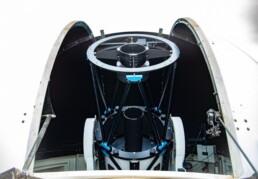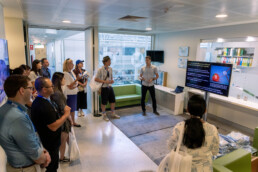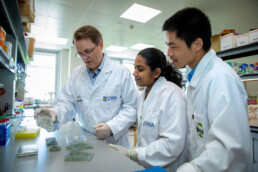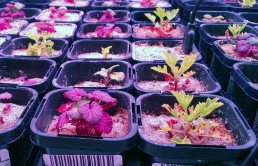Capability > Plants for Space
Humans rely on plants for food, oxygen, and psychological wellbeing. To support a long-term presence in deep space it will be essential to have plants as our partners. To achieve this we will need to breed and modify both plants themselves, as well as the habitats we grow them in.
Plants for Space News
PLANTS FOR SPACE – MISSION CRITICAL
While capability for human space travel is leaping forward, technology for critical life support systems is lagging far behind. Food to sustain long-term missions is one of the largest challenges for mission planners, as the volume and weight of required food ends up too expensive to transport.
As a consequence, long-term human missions in deep space will have to supply a significant portion of mission supplies from materials found, grown, or manufactured on board. The development of new technologies and habitats for plant-based food cultivation will harness the benefits of oxygen production as well as to human nutrition and wellbeing.
Both plants and their habitats can be modified through environmental cues and the synthetic environments we create for them, allowing us to improve their performance for a particular use. We can also design plants with new functions, optimised for the specialist needs of the space environment using synthetic biology technologies.
Fully understanding plant metabolism and gas exchange (photosynthesis and respiration) and how these change in response to environmental conditions will be critical to understand what plants can do for us in deep space, as well as how they need to be modified to grow well in space environments.
Our research groups, led by Professor Harvey Millar and Professor Ryan Lister, focus on:
- plant respiration modification to maximise growth and minimise CO2 release
- plant growth habitat design for the International Space Station and other off-earth missions
- plant protein production system design and optimisation
- understanding plant cell responses to altered environments and growth conditions
- engineering plant gene activity through programmable genetic computation for optimised plant performance and modified function




